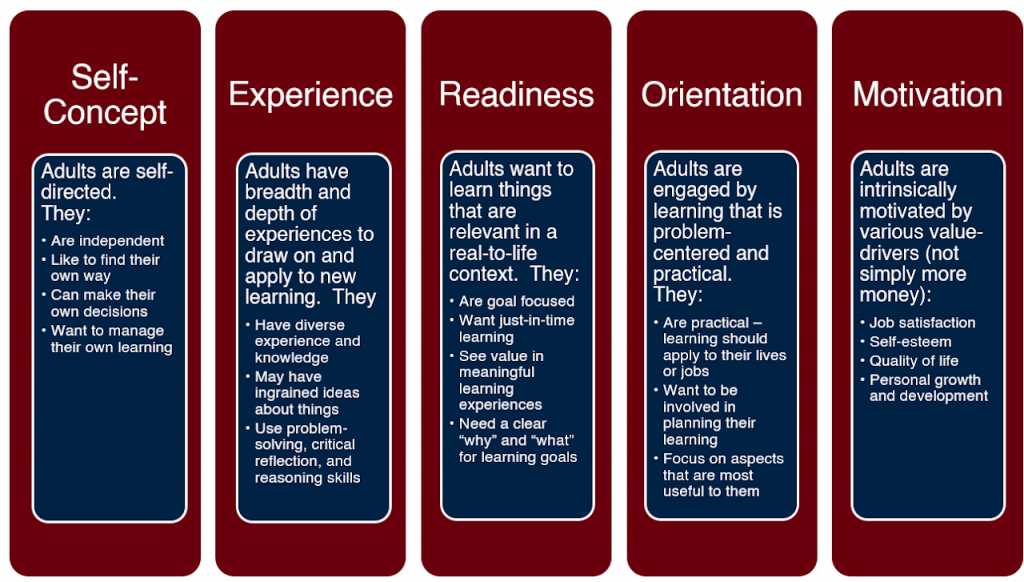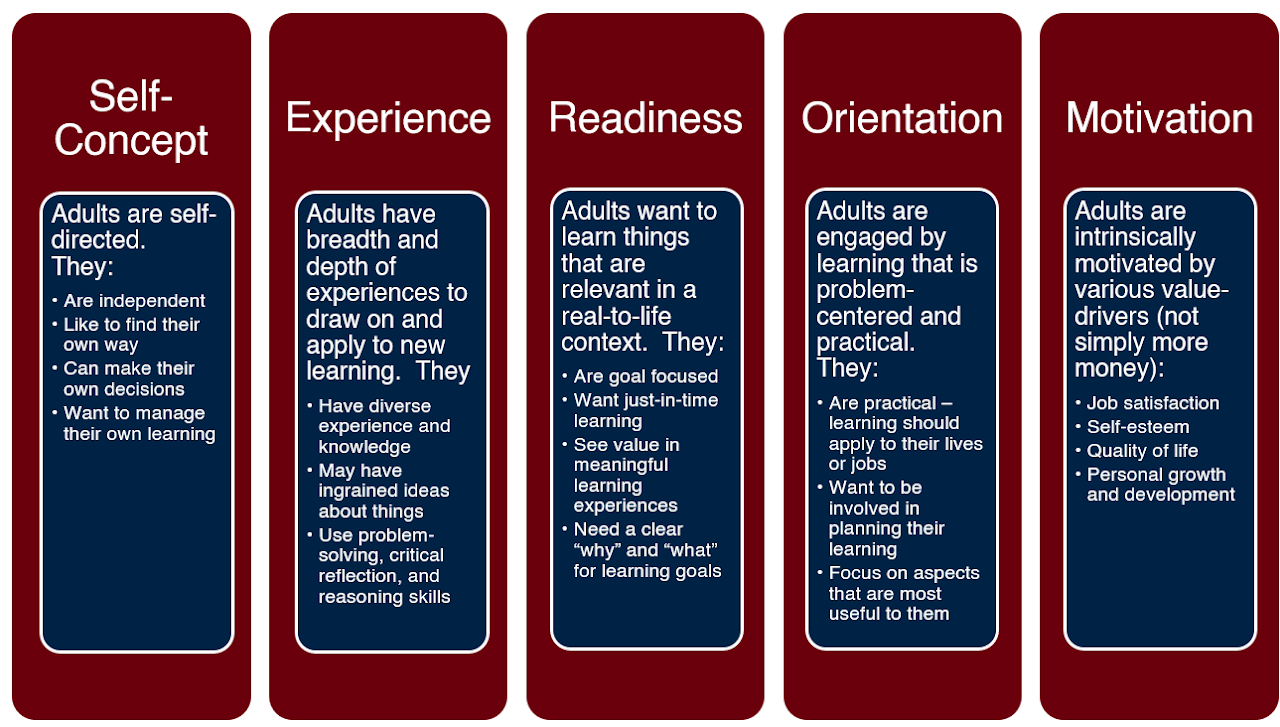
Here are the components that Knowles claims make for successful adult education and how they differ from the instruction of children:
- Need to Know
- Pedagogy: Learners only need to know what it takes to pass the class, not to apply it to their lives.
- Andragogy: Learners need to know WHY they need to know the information.
- Self-Concept
- Pedagogy: The learner is dependent.
- Andragogy: The learner is a self-directed human who learns more when they have some control over their learning and don’t just sit back and wait to be taught.
- Role of Experience
- Pedagogy: The learner’s experience doesn’t matter, only the teacher’s or textbook writer’s.
- Andragogy: Adults have so much more experience in life that adults are much more varied than students and therefore learn more from experiential (hands-on, active) learning techniques.
- Readiness to Learn
- Pedagogy: Learners will be ready to learn if they want to pass the class.
- Andragogy: Adults need just-in-time learning so that they are learning things they can use right away.
- Orientation to Learning
- Pedagogy: Learners see their role as acquiring subject matter.
- Andragogy: Adults see the purpose of learning as acquiring information about a task or problem-at-hand.
- Motivation to Learn
- Pedagogy: Learners’ motivation is purely extrinsic – grades and approval are all that matter.
- Andragogy: While adults do have some extrinsic motivation regarding promotions and the like, they also have intrinsic motivation to simply “be better”.
